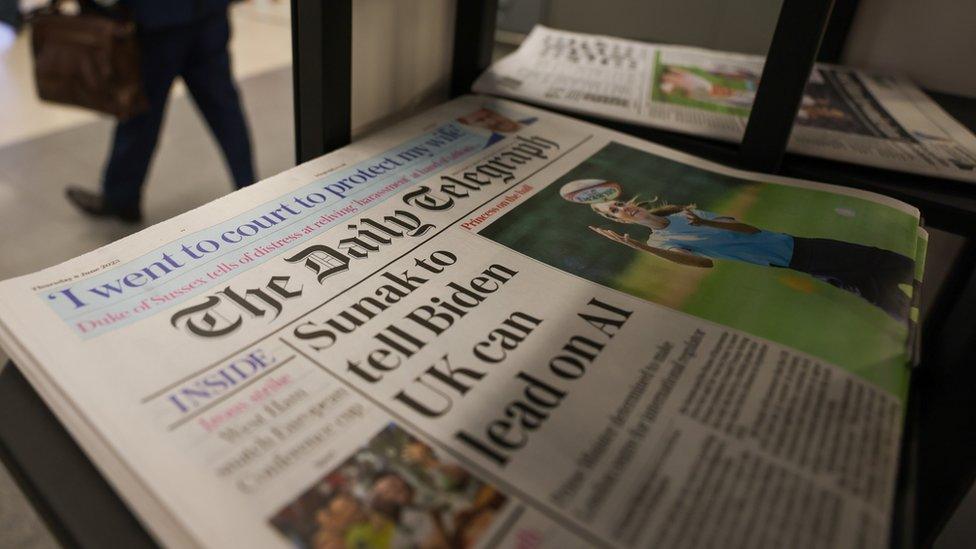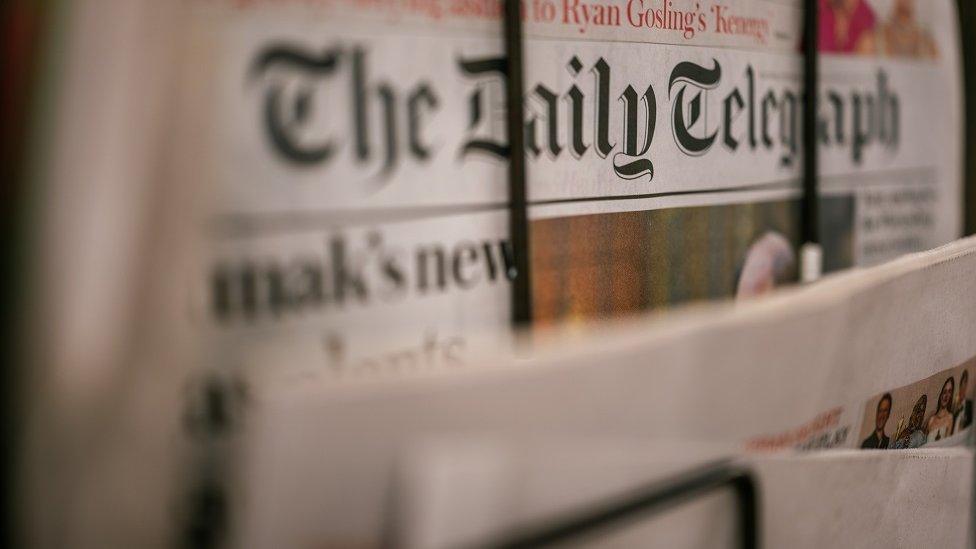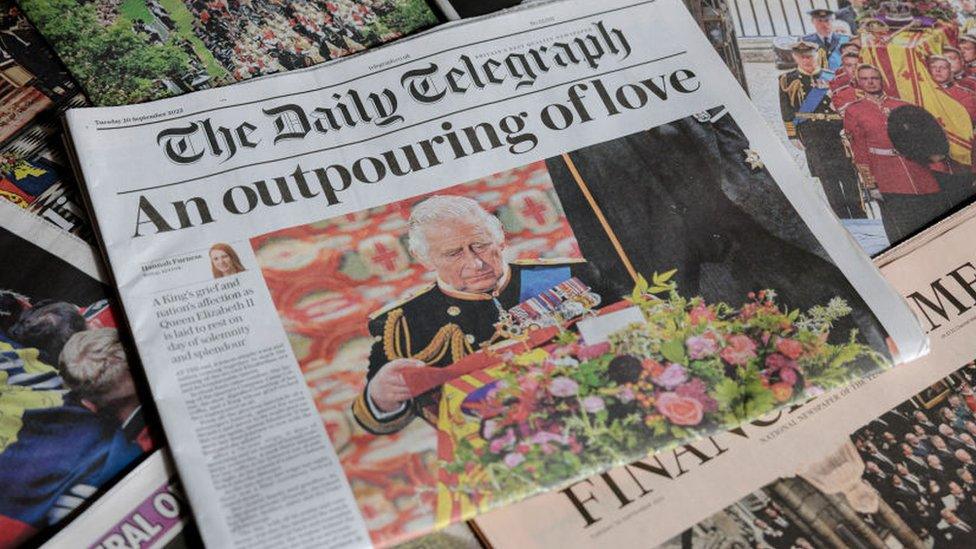Telegraph up for sale after takeover collapses
- Published
- comments

The Daily and Sunday Telegraph newspapers are back up for sale after an Abu Dhabi-backed bid to take them over collapsed.
The ownership of the papers was set to be transferred to the Gulf-backed RedBird IMI consortium before the government intervened in January.
Legislation has since been put forward to ban foreign states from owning UK newspapers and news magazines.
RedBird said it would halt the takeover and put the media firm up for sale.
The investment firm said its plans were "no longer feasible", adding it would now look to secure the "best value" for the titles, which include the Spectator magazine.
"We have held constructive conversations with the government about ensuring a smooth and orderly sale for both titles," it said in a statement.
The Abu-Dhabi-backed deal for the Telegraph was largely funded by Sheikh Mansour bin Zayed bin Sultan al-Nahyan, the owner of Manchester City Football Club and vice-president and deputy prime minister of the United Arab Emirates (UAE).
But concerns were raised by MPs and some of the newspaper's current and former journalists, as well as readers, that the title might fall under control of an authoritarian foreign state.
In January, the government intervened to scrutinise the deal and announced last month that foreign governments would be banned from owning UK newspapers and news magazines.
The government said the legislation would "deliver additional protections for a free press".
On Tuesday, RedBird said the consortium's ownership would have seen the "the strongest editorial protections ever put forward for a UK newspaper, along with much-needed investment."
But it added: "Under the legislation's definition of foreign power, it will not be possible for RedBird IMI to proceed with its proposed takeover of the Telegraph and Spectator."
The group said its independent directors appointed to run the Telegraph and the Spectator last summer would remain in place until the sale process is completed.
Culture Secretary Lucy Frazer said she had "raised concerns about the potential impact of this deal on free expression and accurate presentation of news".
Ms Frazer added she would "allow the parties to conduct an orderly transition".
Chairman of The Spectator Andrew Neil told the BBC the sales process has put him and the magazine "in limboland".
"We've been in limboland for almost a year," he said during an interview on the BBC's World At One programme.
Asked who might buy the Telegraph and Spectator now RedBird has pulled out, he said: "Who knows? It's back to the future."
The Telegraph and the Spectator magazine were put up for sale last year when they were seized by Lloyds Banking Group from long-time owners the Barclay family, which had failed to pay back a loan of more than £1bn.
Lloyds commenced an auction process, but at the last minute, the Barclay family paid off their debt with money lent by Sheikh Mansour bin Zayed al-Nahyan, and in return, the Barclay family agreed to transfer ownership to the Gulf-backed consortium.
RedBird said on Tuesday that it held £600m of debt in the titles.
Gulf states have been very significant investors in the UK in recent years. UAE-based investors have poured billions into ports, housing projects, windfarms and science parks and are being courted for an investment in a new nuclear power plant at Sizewell in Suffolk.
Previous bidders for the Telegraph included hedge fund tycoon Sir Paul Marshall who owns GB News, Daily Mail owners DMGT and Rupert Murdoch's News UK.
Related topics
- Published13 March 2024

- Published1 December 2023

- Published5 January 2024
